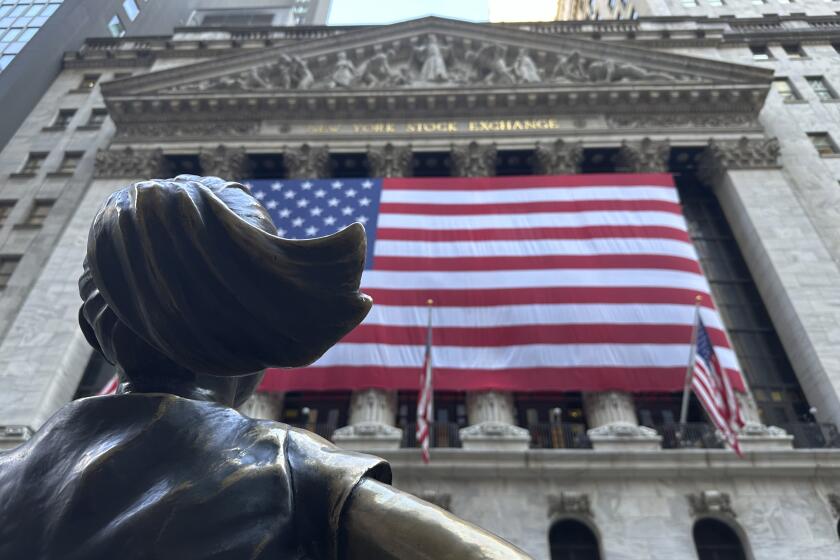Fed Investigating Rumors of ‘Squeeze’ on Bond Sales
The Federal Reserve is trying to determine whether a large portion of two recent $12-billion issues of Treasury notes has ended up in the hands of a few owners who may now be demanding a premium for selling or lending the securities.
According to widespread rumors in financial markets, such a maneuver is occurring, squeezing dealers and investors who need to acquire the two-year Treasury notes to cover “short” market positions.
The Fed has a big stake in assuring an open, orderly market in government securities, which it buys and sells constantly to influence the course of the economy.
If the Fed detected a squeeze was in process, it could bring strong pressure on the participants to stop. However, in the lightly regulated government securities market, carrying out such a squeeze would not normally be illegal, officials at several securities dealers said.
A short sale occurs when an investor who believes the value of a security that he or she does not yet own sells it, expecting its value to fall. Initially, the short seller may borrow the security from someone else so he or she can deliver it to the buyer. If all goes well, the investor will replace the borrowed security by buying it at a lower price in the market.
As a result of the apparent squeeze on the Treasury notes, there were few sellers but plenty of buyers, a condition that has pushed yields on the notes about 0.15 percentage points below what they otherwise would be, analysts said.
Similarly, holders of the notes, who were using them as collateral on loans, were able to borrow at favorable rates from investors who needed to obtain the securities to cover a short position. The holders were paying as little as 1% to 4% interest rates on such loans. In contrast, transactions of that type, called repurchase agreements, that involved other government securities were paying about 5.8% Thursday.
Speculation on the identity of the note holders centered on George Soros, manager of an aggressive hedge fund, the Quantum Fund.
The rumors also indicated that Salomon Brothers Inc., one of the largest of the major dealers in government securities, was involved, presumably acting on Soros’s behalf.
According to Dow Jones Capital Markets Report, Soros and Salomon Brothers declined to comment on the rumors.
A spokesman at the Federal Reserve Bank of New York said that officials there were “asking questions” about the circumstances surrounding the two-year notes but that they did not consider it to be an investigation.
The yield on the two-year notes “is definitely out of line” with what it normally would be given the yields on other Treasury securities, said a senior official at one government securities dealer.
While it was unclear exactly how the apparent squeeze developed, an official at another major dealer said that it was quite possible for one or more investors to gain leverage over an issue by putting up only $100 million to $200 million.
With such a stake, the investor, working though a dealer, could spread offers to buy several billion dollars worth of the notes among several other dealers. Those dealers, unaware of what was in store, would agree to sell the desired securities. Likely, they would have only a portion of what was sold already in their own inventory and would plan to buy or borrow the rest.
But if the investor setting up the squeeze acquired enough of the available supply, the only source from which the dealers who were short could obtain the notes would be the investor to whom they had sold them in the first place.
More to Read
Inside the business of entertainment
The Wide Shot brings you news, analysis and insights on everything from streaming wars to production — and what it all means for the future.
You may occasionally receive promotional content from the Los Angeles Times.






